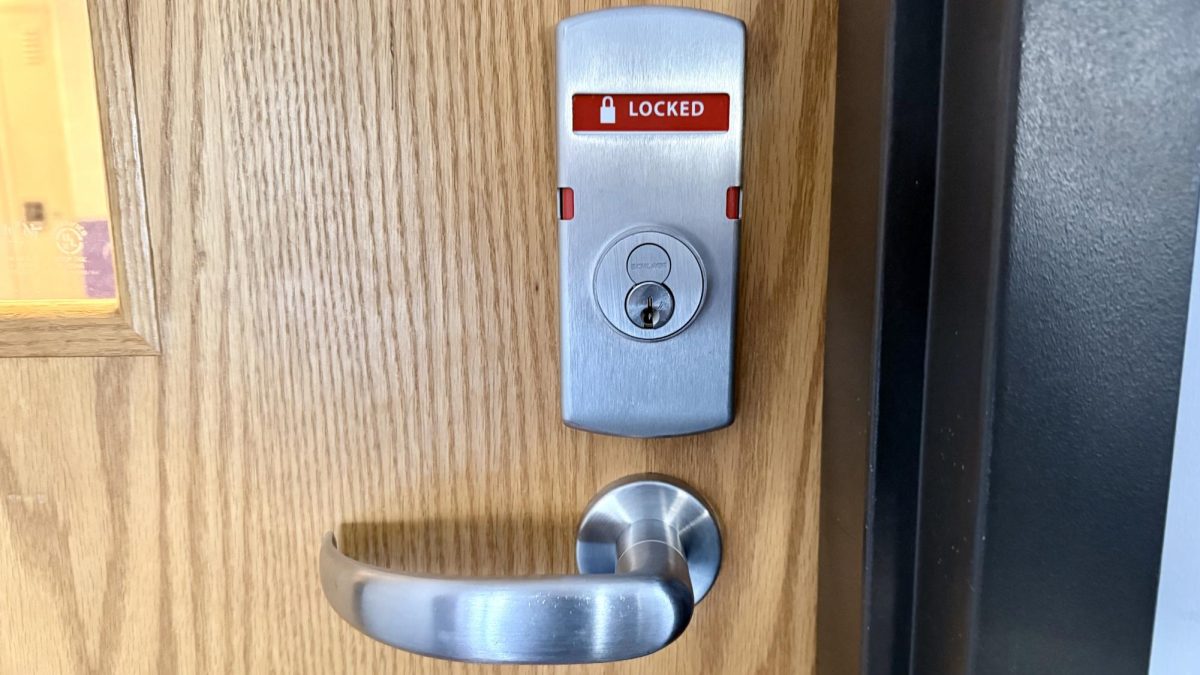UPDATE, Feb 21, 2025: This morning, District 219 Director of Security Al Lopez sent an email to all staff clarifying that going forward, doors will be locked during class periods. He cited the Sandy Hook Advisory Commission which found that “… there has never been an event in which an active shooter breached a locked classroom door.” Lopez also noted that “this is a shift in our school and work culture,” and asked that staff “support colleagues who may need reminding that this simple action is critically important to our safety and well-being.” At this time, students and families have not yet been notified of the policy change.
Opening the door is usually the easiest part of getting to each class each day, but starting Jan. 29, a new barrier was introduced in certain classrooms. Some teachers at Niles North have started locking their doors during class periods out of concern for student’s safety, but a lack of explanation from teachers and building leaders has left some students with questions.
Senior Rhiann Calimutan had a positive outlook on door-locking. “Only two of my teachers have started locking the door,” he said. “I don’t mind it. If they feel unsafe then it’s their choice to lock their doors.”
Meanwhile, sophomore Lukas Zeea didn’t understand it.
“There’s been one teacher for my world language class that has started it,” Zeea said. “I think it’s useless. It’s a distraction… it’s tedious for students and teachers. Given that only some teachers have started locking their doors, it’s pretty confusing since some teachers are doing it and others aren’t.”
Principal Marlon Felton understands the confusion. He said that he and other leaders “didn’t discuss locking the doors as a mandate” during professional development on Jan. 29. “We might have discussed suggestions or tips, but nothing was required.”
Felton and Assistant Principal of Operations Julianne Evans cited recent national events and soft lockdowns earlier in the semester as inspiring conversations around safety, but Evans clarified that staff members may also discover protocols from external sources. “When you go through those scenarios, staff members sometimes don’t get professional development from us,” she said. “They hear from other teachers and other schools.”
Felton is optimistic about students’ responses to the practice. “Like anything, it will be tough to adjust to, but I think students won’t mind it soon.”
This sentiment was true of Calimutan’s classmates. He explained, “Most of my classmates are finding it to be fine.”
“If a teacher is locking the door, it’s not to keep you out of the room,” Evans said. “It’s not a message of, ‘Please don’t be here.’”
As for Zeea and his friends, they’re still not convinced. “It just sucks because it feels like a to-do if I’m barely late to a class.”
Neither Felton nor Evans could provide a definitive answer on whether or not the door-locking practice will develop into a proper policy, but Felton said, “In the future, we’re going to keep talking about ways to keep anxiety down [about safety].”









